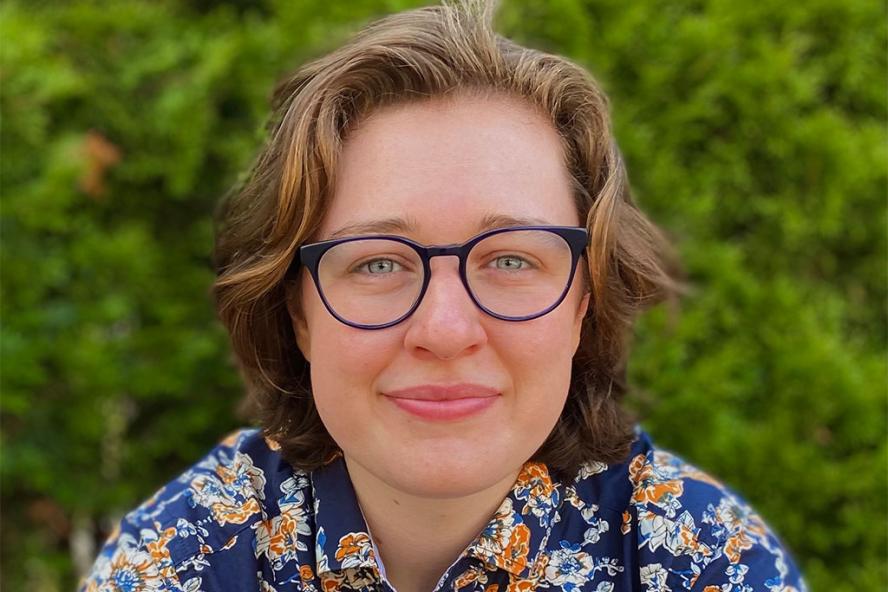Instructor Spotlight: Mia Levenson

Tell us about your background and what inspired you to teach this course?
Mia Levenson: I started off undergrad on the pre-med track, majoring in both biology and theatre. When I reoriented to focus on studying theatre, I was really interested in how medicine and the biological sciences were represented onstage. As a graduate student, my research has focused on examining how scientific ideas have been communicated through both theatrical performances and popular media. When COVID happened, I was writing my master’s thesis, which looked at how physician characters in 19th century US drama represented various discourses about medicine and health. Weirdly enough, campus shut down as I was writing my third chapter about nativism during epidemics. Realizing that my work was taking on a prescient and urgent meaning, I wondered how my research could illuminate broader histories of medicine and disease. In the fall following my thesis defense, I took a class on the history of epidemics at Harvard University with Professor David S. Jones. I learned a lot that semester, but what felt most exciting to me were our discussions about how outbreaks are portrayed in popular media and what that reveals about humans’ relationships to pathogens, illness, and community. This is where the idea for the class came from – to really dive into the ways that people use art to reckon with the inevitability of disease.
You’re probably getting a lot of questions about COVID. How did the pandemic inspire or influence this course?
ML: This course doesn’t solely focus on COVID, but as COVID is an ongoing pandemic, its influence on the class is always present. While our readings contextualize how humans throughout history have made meaning from their interactions with pathogens, students have their lived experience of surviving COVID. In the final week of the course, we are going to turn to art produced in 2020 to think about what we can do with the history we’ve learned and how we can use it to make sense of our current predicament.
A lot of TV shows had seasons that took place during the COVID pandemic and integrated it into the plot line. What is your take on these?
ML: I remember reading somewhere online that people were getting tired of seeing masks on screen and hearing characters refer to the pandemic. This, I think, reflects a larger question in the class of why cultural producers like writers and artists often use contagion as a metaphor, rather than create art about real epidemics. For instance, there are very few literary representations of the 1918 Influenza Pandemic (even fewer portrayals in drama). People don’t want to think about an epidemic that is imminent, currently happening, or had just occurred. And yet, these parables still reveal how we understand and remember disease outbreaks.
Your class covers the important intersection of science and performance. What would you say to those that may argue that the two of them are not related?
ML: Science can feel like a very abstract concept, but science is contained in very real, tangible things like data or technology. Performance allows us to think about how these things are constructed by people (i.e., scientists). And performance illuminates how scientific knowledge is produced and how people make meaning from this knowledge.
What do you hope that students will take away from your course?
ML: At the core of this course, I want students to understand that COVID was not the first epidemic, and it won’t be the last. As humans, we are always reckoning with disease and its consequences. What we can do is learn from these histories and think about how we can make meaning from this moment.
What is something you are looking forward to having/doing in your course later in the semester?
ML: I have an assignment called “Pandemic: The Game: The Game” (whose title is based on the TV show, “High School Musical: The Musical: The Series”) where students will create a game based on the concepts we’ve discussed in class. We’re then going to play the games in class. The point is to see how we can communicate the course’s core concepts in a way that is fun and engaging. I’m looking forward to students making something that is interesting and exciting to them!
Mia Levenson is a PhD candidate in Theatre and Performance Studies at Tufts. Her research interests explore the intersection of biomedical science, the construction of race, and popular theatrical performance.